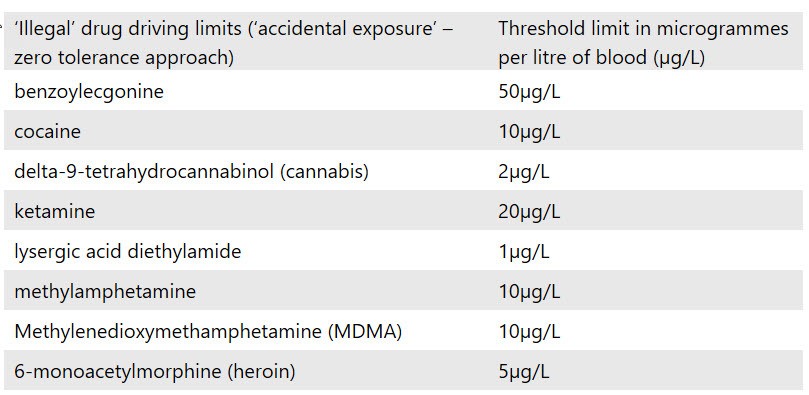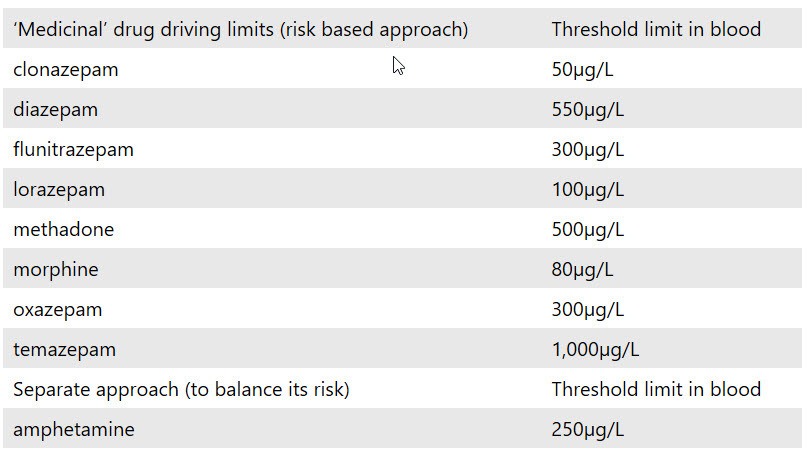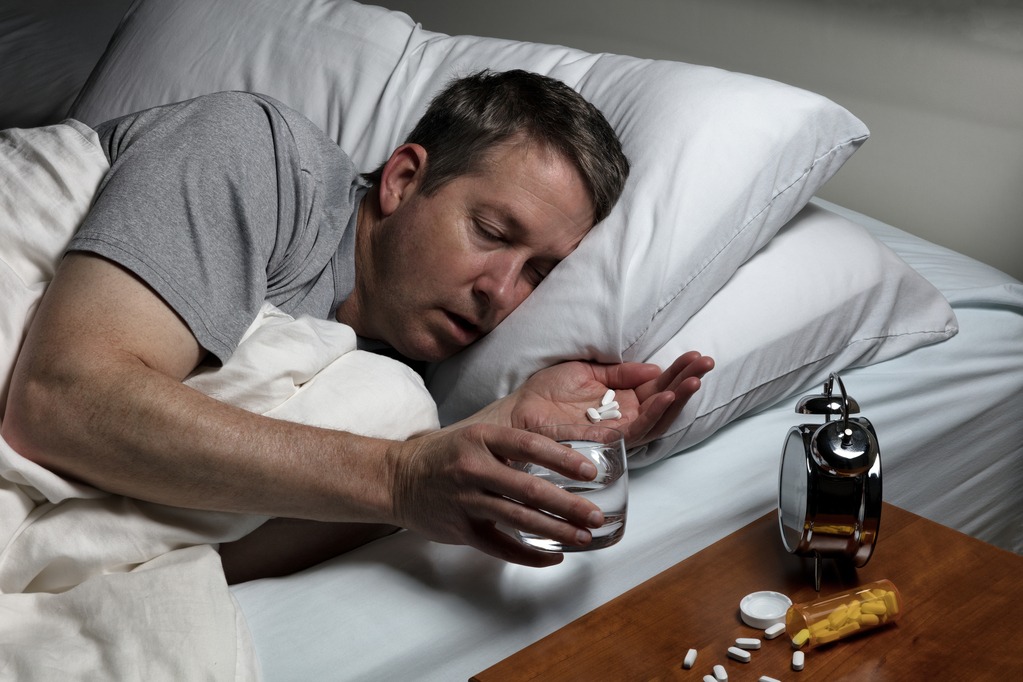Until 2015, drug driving was the ‘safe’ option by some motorists. That doesn’t mean they necessarily thought they were in a fit state to get behind the wheel, it just means that perhaps thought they wouldn’t get caught.
More...
While the dangers and consequences of drink-driving have been well-publicised, drug driving was clouded by complicated laws and difficulties for police testing at the roadside. Making it difficult to detect when a driver was under the influence and easier to get away with.
Research conducted by road-safety group THINK! revealed that around 20 per cent of people know someone who has driven after taking illegal drugs.
Of those who admitted to driving under the influence of illegal drugs, 55 per cent said they did so because they felt safe to drive as it gave them a false sense of confidence.
In 2015, new laws were put into place, and there are now strict “zero tolerance” rules around drug driving and technology to catch the motorists at the roadside. In fact, even the smallest amount of narcotic consumption could result in a positive roadside test and a driving ban, along with a fine and criminal record.
Since these new laws came into effect, an average of four UK motorists every day are found guilty of driving under the influence of drugs, and drivers are now as likely to be found guilty as those who drink and drive.
But it’s not just the ‘recreational’ (and illegal) narcotics which can cause drivers issues. Prescription medication can also restrict your ability to drive, and it is crucial to know what the legal limits are and how soon you can get behind the wheel after taking them.
For illegal drugs, the rules are simple. If you have taken drugs, you shouldn’t drive. Unlike the guidelines for alcohol which suggest safe limits for driving, the government guidelines only allow for the merest trace. Even after a few days you may still have traces of the drug in your system which could be detected by a roadside saliva test.
To help with detection, police use ‘drugalyser’ kits, which take a sample of saliva to test for common recreational drugs such as cannabis and cocaine at the roadside. The check takes around 10 minutes to deliver a result, and a positive test will end in your arrest and a further blood sample being taken at a Police station.
Since the new laws were introduced, they can also run blood tests at police stations for drugs such as ecstasy, LSD, ketamine and heroin without having to gather evidence that the driver seemed to have impaired driving ability, as was previously required.
The results of those blood tests will decide if you will be charged. Apart from very small amounts, which are deemed as ‘accidental exposure’ (such as passively breathing in cannabis smoke in a room at a party, for example) you are likely to fall foul of the law.
Even these small amounts are likely to attract questions from the police, regardless of the quantities involved, as they are simply illegal.

Driving while on prescription medication
The question of ‘legal’, medicinal drugs is more complicated. Many prescription medications can leave you unfit to drive, and the best advice is to seek the guidance of your doctor, pharmacist and to read the packaging carefully before taking them to see if they will affect your ability to drive. If you fail to do so and get caught or have an accident, don’t expect the law to be on your side.
The government does publish the legal levels for ‘medicinal’ drug driving limits (below), but there is no way of a driver knowing what these levels mean. It is impossible to provide a rule of thumb for what dosage equates to the threshold levels as it differs from person to person and is affected by variables such as diet, water intake and exercise.
As always, the rule is that if you are in any doubt at all, do not drive a vehicle.

Punishments for drug driving
The laws and punishments for drug driving run along the same lines as those for drink driving. Risk it, and you are likely to lose your licence, face a stiff fine of up to £5,000 and be given a criminal record.
In addition, users of illegal drugs will face other charges for possession and are likely to be asked some awkward questions too.
Ref:https://www.msn.com/en-gb/cars/news/drug-driving-uk-laws-explained/ar-AAG6Yij?ocid=spartandhp

